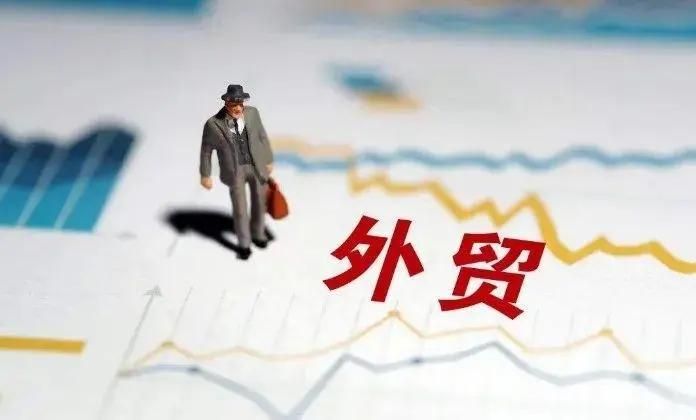#New foreign trade regulations in February 2024
1. China and Singapore will exempt each other from visas starting from February 9
2. The United States launches an anti-dumping investigation into Chinese glass wine bottles
3. Mexico launches anti-dumping investigation into ethylene terephthalate/PET resin
4. Manufacturers and importers in specific industries in Vietnam need to bear recycling responsibilities
5. The United States bans the Department of Defense from purchasing batteries from Chinese companies
6. Philippines suspends onion imports
7. India bans the import of some low-priced screw products
8. Kazakhstan bans the import of disassembled right-hand drive passenger cars
9. Uzbekistan may restrict imports of cars and electric vehicles
10. EU bans “greenwashing” advertising and labeling of goods
11. The UK will ban disposable e-cigarettes
12. South Korea prohibits overseas Bitcoin ETF transactions through domestic brokers
13. EU USB-C becomes a universal standard for electronic devices
14. Bangladesh Central Bank allows import of some commodities with deferred payment
15. Thai e-commerce platforms must submit merchant income information
16. Vietnam’s Decree No. 94/2023/ND-CP on reducing value-added tax
1. Starting from February 9, China and Singapore will exempt each other from visas.
On January 25, representatives of the Chinese government and the Singaporean government signed the "Agreement between the Government of the People's Republic of China and the Government of the Republic of Singapore on Mutual Visa Exemption for Ordinary Passport Holders" in Beijing. The agreement will officially enter into force on February 9, 2024 (Lunar New Year’s Eve). By then, people from both sides holding ordinary passports can enter the other country without a visa to engage in tourism, family visits, business and other private affairs, and their stay shall not exceed 30 days.
2. The United States launches anti-dumping and anti-counterfeiting investigations into Chinese glass wine bottles
On January 19, the U.S. Department of Commerce announced the launch of an anti-dumping investigation on glass wine bottles imported from Chile, China and Mexico, and a countervailing investigation on glass wine bottles imported from China.
3. Mexico launches anti-dumping investigation into ethylene terephthalate/PET resin
On January 29, the Mexican Ministry of Economy issued an announcement stating that at the request of Mexican companies, it would launch an anti-dumping investigation into polyethylene terephthalate/PET resin originating in China regardless of the source of import. The products involved are virgin polyester resins with intrinsic viscosity not less than 60 ml/g (or 0.60 dl/g), and virgin polyester resins with intrinsic viscosity not less than 60 ml/g (or 0.60 dl/g). A mixture of recycled PET.
4. Manufacturers and importers in specific industries in Vietnam need to bear recycling responsibilities
Vietnam's "People's Daily" reported on January 23 that in accordance with the requirements of the Environmental Protection Law and Government Decree No. 08/2022/ND-CP, starting from January 1, 2024, the production and import of tires, batteries, lubricants and Companies that package some products commercially must fulfill corresponding recycling responsibilities.
5. The United States prohibits the Department of Defense from purchasing batteries from Chinese companies
According to a report on the Bloomberg News website on January 20, the U.S. Congress has banned the Department of Defense from purchasing batteries produced by China’s largest battery manufacturers. This regulation will be implemented as part of the latest defense authorization bill passed in December 2023. . According to reports, relevant regulations will prevent the purchase of batteries from CATL, BYD and four other Chinese companies starting in October 2027. However, this provision does not apply to corporate commercial purchases.
6. Philippines suspends onion imports
Philippine Agriculture Secretary Joseph Chang ordered the suspension of onion imports until May. The Department of Agriculture (DA) said in a statement that the order was issued to prevent oversupply from further depressing onion prices. The Ministry of Agriculture said the import suspension may be extended until July.
7. India bans the import of some low-priced screw products
The Indian government said on January 3 that it would ban the import of certain types of screws priced below 129 rupees/kg. This move will help promote the development of India's domestic manufacturing industry. Products included in the ban are crew screws, machine screws, wood screws, hook screws and self-tapping screws.
8. Kazakhstan prohibits the import of disassembled right-hand drive passenger cars
Recently, the Minister of Industry and Construction of Kazakhstan signed an administrative order on “regulating certain issues regarding the import of certain types of right-hand drive passenger vehicles.” According to the document, starting from January 16, the import of disassembled right-hand drive passenger cars into Kazakhstan (with some exceptions) will be prohibited for a period of six months.
9. Uzbekistan may restrict the import of cars and electric vehicles
According to Uzbek Daily News, Uzbekistan may tighten imports of cars (including electric cars). According to the draft government resolution "On Further Improving Passenger Car Import Measures and Compliance Assessment System in Uzbekistan", individuals may be prohibited from importing cars for commercial purposes starting from 2024, and foreign new cars can only be sold through official dealers. The draft resolution is under discussion.
10. EU bans “greenwashing” advertising and labeling of goods
Recently, the European Parliament passed a new legal directive "Empowering Consumers to Achieve a Green Transformation", which will "prohibit greenwashing and misleading product information." Under the decree, companies will be prohibited from offsetting any proportion of a product or service's carbon footprint and then stating that the product or service is "carbon neutral," "net zero emissions," "has a limited carbon footprint" and has "a negative impact on the climate." limited" approach. In addition, companies are not allowed to use general environmental protection labels, such as "natural", "environmental protection" and "biodegradable" without clear, objective and public evidence to support them.
11. The UK will ban disposable e-cigarettes
On January 29, local time, British Prime Minister Sunak announced during a visit to a school that the UK will ban the use of disposable e-cigarettes as part of the British government’s ambitious plan to address the increase in the number of e-cigarettes among teenagers. issues and protect children’s health.
12. South Korea prohibits overseas Bitcoin ETF transactions through domestic securities firms
South Korea’s financial regulator said that domestic securities companies may violate the Capital Markets Act by providing brokerage services for Bitcoin spot ETFs listed overseas. The South Korean Financial Commission said in a statement that South Korea will study Bitcoin spot ETF trading matters and regulators are preparing crypto asset rules.
13. EU USB-C becomes a universal standard for electronic devices
The European Commission recently stated that USB-C will become the common standard for electronic devices in the EU from 2024. USB-C will serve as a universal EU port, allowing consumers to charge any brand of device using any USB-C charger. "Universal charging" requirements will apply to all handheld cell phones, tablets, digital cameras, headphones, portable speakers, handheld electronic game consoles, e-readers, earbuds, keyboards, mice and portable navigation systems. By 2026, these requirements will also apply to laptops.
14. Bangladesh Bank allows deferred payment for imports of some goods
The Central Bank of Bangladesh recently issued a notice to allow the import of eight key commodities on a deferred payment basis in order to stabilize prices during Ramadan, including edible oil, chickpeas, onions, sugar and other consumer goods and some industrial raw materials. The facility will provide traders with 90 days for import payments.
15. Thai e-commerce platforms must submit merchant income information
Recently, the Thai Taxation Department issued an announcement on income tax, stipulating that e-commerce platforms create special accounts to submit income information of e-commerce platform operators to the Taxation Department, which will be effective for data in the accounting cycle starting from January 1, 2024.
16. Vietnam’s Decree No. 94/2023/ND-CP on reducing value-added tax
In accordance with National Assembly Resolution No. 110/2023/QH15, the Vietnamese government issued Decree No. 94/2023/ND-CP on reducing value-added tax.
Specifically, the VAT rate for all goods and services subject to the 10% tax rate is reduced by 2% (to 8%); business premises (including self-employed households and individual businesses) are required to issue invoices for all goods and services under VAT , reducing the VAT calculation rate by 20%.
Valid from January 1, 2024 to June 30, 2024.
Official Gazette of the Government of Vietnam:
https://congbao.chinhphu.vn/noi-dung-van-ban-so-94-2023-nd-cp-40913
The VAT exemption applies to goods and services currently taxed at 10% and applies to all stages of import, production, processing and trade.
However, the following goods and services are excluded: telecommunications, financial activities, banking, securities, insurance, real estate operations, metals and fabricated metal products, mining products (excluding coal mines), coke, refined petroleum, chemical products.
Under the Information Technology Act, products and services are subject to information technology consumption tax.
Certain types of companies involved in coal mining and implementing closed-loop processes are also eligible for VAT relief.
According to the provisions of the VAT Law, goods and services that are not subject to VAT or 5% VAT shall comply with the provisions of the VAT Law and shall not reduce the VAT.
The VAT rate for businesses is 8%, which can be deducted from the taxable value of goods and services.
Enterprises can also reduce the VAT rate by 20% when issuing invoices for goods and services that qualify for VAT exemption.
Post time: Feb-07-2024







